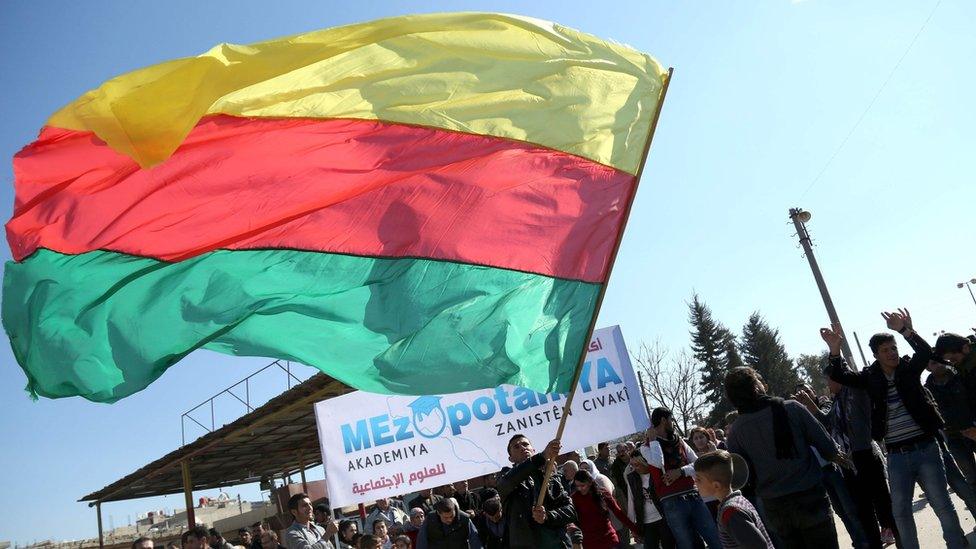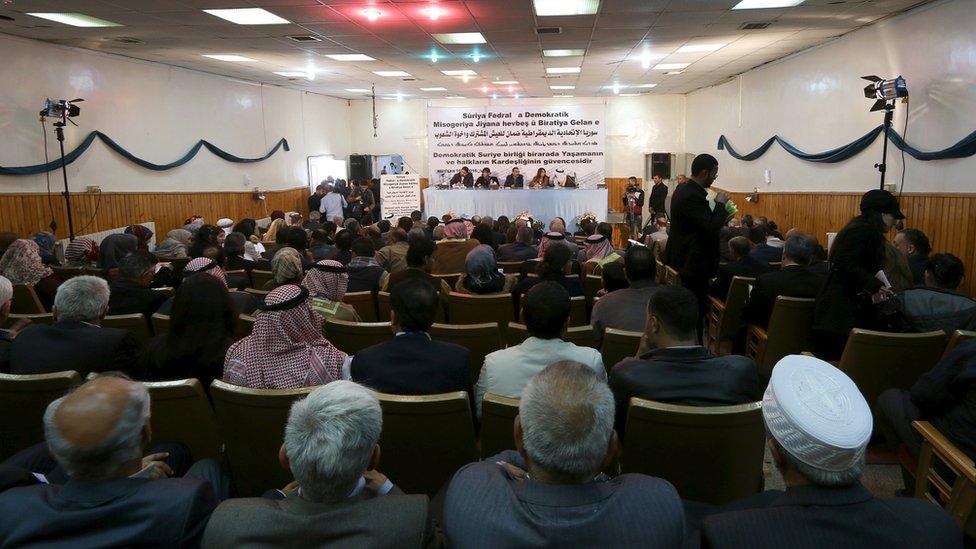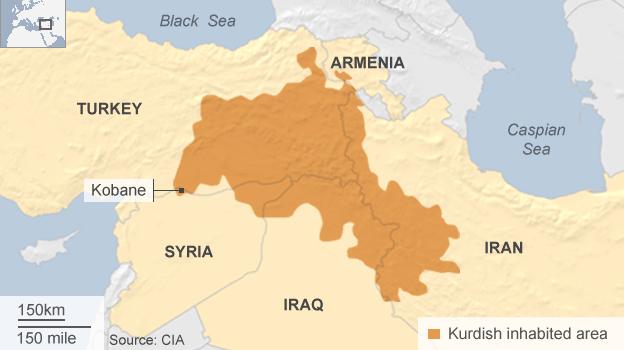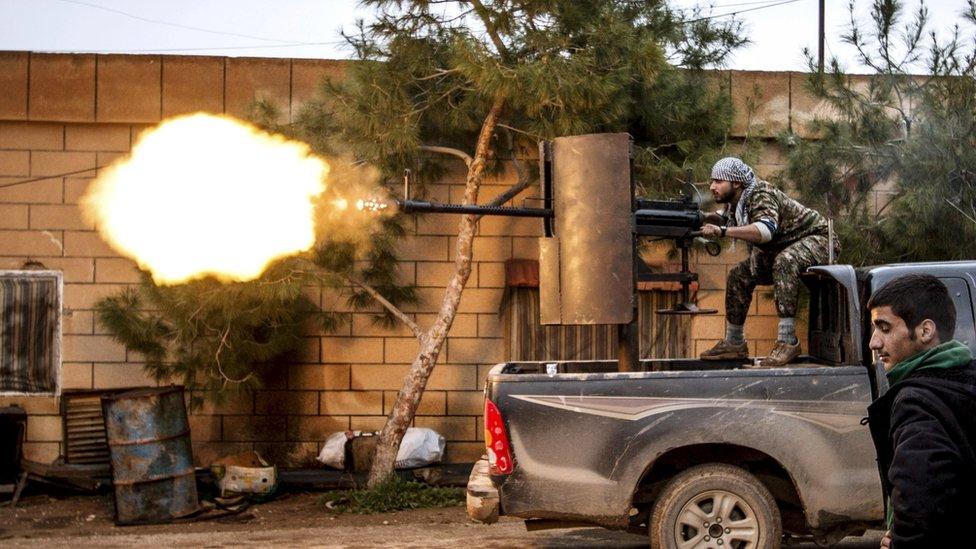Syria conflict: Kurds declare federal system
- Published

Kurds made up between 7% and 10% of Syria's pre-war population
Kurdish parties have declared the establishment of a federal system in areas they control in northern Syria.
The Kurds already operate "autonomous administrations" in three enclaves bordering Turkey: Afrin and Kobane in Aleppo province and Jazira in Hassakeh.
The new federal region will also include mainly Arab and Turkmen areas captured from so-called Islamic State.
The declaration was dismissed by the Syrian government, which insisted that it would have no legal basis.
The US and Turkey, which is wary of anything that might encourage separatism by its own Kurdish minority, have also warned against such a unilateral move.
'Model for Syria'
The plan to declare a federal system across much of northern Syria was approved by representatives of Kurdish, Arab and other parties at a conference in Rmeilan.

The region will reportedly be called "Rojava - northern Syria". Rojava is the term Kurds use to refer to western or Syrian Kurdistan.
On Wednesday, officials from the powerful Kurdish Democratic Union Party (PYD) stressed they were not seeking to establish a Kurdish-only region, but one that included representation for all ethnic and religious groups.
The arrangement would also preserve Syrian national unity by preventing a country divided and devastated by five years of civil war from breaking up, they added.
"The federalism project is a model for all Syria," spokesman Nawaf Khalil told the Associated Press.

Kurdish officials said the federal system would represent all ethnic groups
However, the Syrian government has ruled out the idea of a federal system.
The official Sana news agency cited a foreign ministry official as saying Thursday's declaration was "without any legal value and void of any legal, political, social or economic effect".
The main Western-backed opposition alliance, the National Coalition, meanwhile warned against "any attempt to form entities, regions, or administrations that usurp the will of the people".

The declaration comes as government and opposition representatives attend UN-brokered talks in Geneva aimed at finding a political solution to end the civil war.
The PYD was not invited to the talks, reportedly at the request of Turkey.
Kurds made up between 7% and 10% of Syria's population of 24.5 million before the uprising against President Bashar al-Assad began five years ago.
Although they were denied basic rights and suffered decades of political suppression by the Arab-led state, most Kurds avoided taking sides when a wave of protests swept the country.

The Kurds have emerged as a key ally of the US-led coalition battle against IS
When government forces withdrew from Kurdish areas to concentrate on fighting rebels elsewhere in mid-2012, Kurdish militias swiftly took control, led by the PYD's Popular Protection Units (YPG).
In January 2014, the PYD and other Kurdish parties created autonomous administrations based in the enclaves, or "cantons", of Afrin, Kobane and Jazira.
Since then, the YPG has emerged as a key ally of the US-led coalition against so-called Islamic State, leading the fight against the jihadist group on the ground in northern Syria.
With the help of US airpower, the YPG has taken control of an estimated 26,000 sq km (10,000 sq miles) of Syria, including a 400 km (250 mile) stretch of territory along the Turkish border.